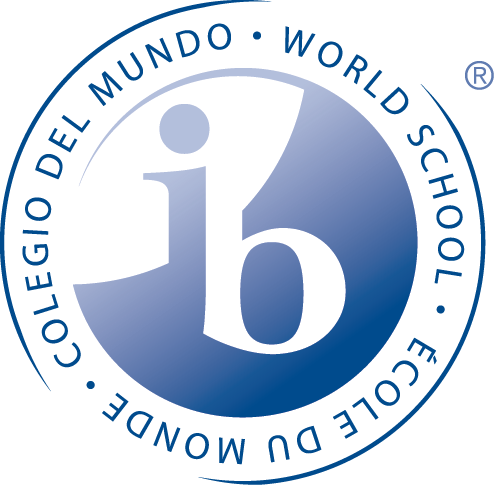MUSIC | Teachers & Instructors - Mr. Combs
Mr. J.P. Combs - Director of Music
Qualifications
Bachelor of Music Performance, Cum Laude
University of Southern California, Los Angeles, May 2008Master of Arts in Music Education
University of California, Irvine, January 2020
Strategic Leadership Development Certification
Philosophy on Teaching
Posted on the outside of the German Opera House is a plaque that reads, “... God gave us music that we might pray without words.” This short sentence illustrates two truths about music that I find most enlightening.
The first is that music is a seemingly supernatural gift; one for which we humans have a very natural and innate affinity. Music is unique, it's significant, and it's beautiful. And like all favorable gifts, it holds great value.
The second truth, which I will expound more fully, is that music is a powerful form of communication. When we share music with others, we communicate on an entirely transcendent level. Music has the power to speak to the soul quicker than any other form of communication. The greatest orators and poets have spoken for hours and filled page upon page to achieve what the music composer does with a single motif, at times only a measure long. No one can deny the immediate change in state that happens when listening to one's favorite melody. Music's primary purpose is to communicate: to connect.
Music, therefore, is meant to be shared. It is a way for us to express that which we cannot put into words. As a tool for articulating our deepest emotions, the cries of our spirit, music allows us to share these deep, indescribable feelings with our fellow humans. With music we are able to connect in ways that supersede social, racial, political, and even lingual barriers. Music is powerful, and we therefore have a responsibility to handle it well.
For me as a music educator and conductor, this means not only developing my talent to the fullest, it also means passing on my craft. Music is a fundamental part of the human experience. Consequently, every single student should have the opportunity to learn more about it and explore it more fully - like any other subject touted as essential to our development.
Because of the collaborative nature of the music ensemble, music teachers have a unique opportunity to educate students not only on the subject matter, but also to help guide students in navigating social settings, structures, and hierarchies, teaching them what it means to be good team players, and helping them to understand - by experiencing first hand - that human beings can be and create so much more together than they can apart.
A professor at USC once described music education as a sacred quest, one that develops the whole person and benefits the whole of society. I believe it is precisely that, and I enthusiastically dedicate my life to that quest, knowing that it is more about the trek than it is about the journey's end. A profound truth I hope convey to each student I get the honor of teaching.
~ J.P. Combs
Musical Background & Teaching Inspiration
In sixth grade, he picked up the saxophone, playing at school and church, and quickly discovered the rewards of hard work and dedicated practice. His efforts paid off—earning seats in the All-Region Honor Band, All-State Honor Band, and ultimately principal chair as a senior, marking him as one of the top high school saxophonists in Arizona. With dreams of becoming “the next Kenny G,” he pursued a degree in Saxophone Performance at BIOLA’s Conservatory of Music in Los Angeles.
During college, he performed with the conservatory’s Symphonic Winds, Jazz Ensemble, Chorale, and Orchestra, and founded its first-ever saxophone quartet. He toured internationally, played on countless stages, and even performed on The Tonight Show with Jay Leno as part of the choir featuring John Debney’s Academy Award-nominated score for The Passion of the Christ.
In his final semester, on the cusp of a solo saxophone career, Mr. Combs took an unexpected detour—answering the call to join a humanitarian mission in Swaziland, Africa, to plant food gardens and teach AIDS prevention. What began as a chance to travel turned into a life-changing experience. Witnessing both abject poverty and remarkable resilience, he was deeply moved by the generosity, joy, and selflessness of the Swazi people. More than anything, he became hooked on the “lightbulb moment”—seeing students’ eyes light up when they grasped something new, realizing they could be part of positive change.
That experience led to deep self-reflection. Letting go of ego and pride, he saw a more meaningful path—not as a soloist, but as a teacher. When he later discovered USC’s graduate program designed for musicians shifting to education, it felt like the perfect fit. He earned his Master’s in Music Education, along with his teaching credential.
In his interview for Ocean View’s band director position, Mr. Combs shared his passion for building well-rounded music programs that serve a diverse range of students. Over the years, that vision has evolved, leading him to expand opportunities beyond traditional band classes. In addition to leading Ocean View’s award-winning instrumental program, he has played a key role in reviving the school’s long-dormant string ensemble and launching a growing Music Production program—continuing his mission to make music accessible, meaningful, and inspiring for all students.
Personal Interests & Hobbies
- Volunteering on the worship team at church, mixing audio and running media on the production side, as well as singing in the church choir.
- Playing cornhole and spikeball with neighbors.
- Home improvement and building projects with his dad.
daughters and traveling together.

